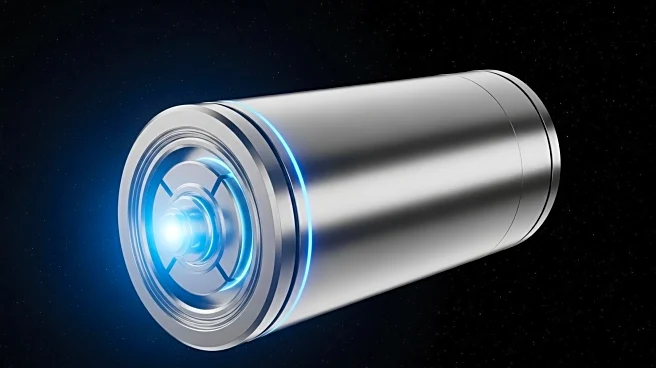What is the story about?
What's Happening?
NASA is exploring the use of americium-241 in Radioisotope Thermoelectric Generators (RTGs) to power spacecraft for extended periods. These 'nuclear batteries' convert heat from radioactive decay into electricity, crucial for missions beyond the solar system where solar power is insufficient. Historically, NASA has used plutonium-238, but americium-241 offers a longer half-life of 433 years, potentially enabling spacecraft to operate for centuries. The Glenn Research Center, in collaboration with the University of Leicester, is testing americium-241's viability, focusing on reliable conversion systems like the Stirling engine.
Why It's Important?
The introduction of americium-241 could revolutionize space exploration by providing a sustainable power source for long-duration missions. This development is significant for NASA's goal of reaching distant celestial bodies, as it addresses the challenge of fuel limitations. The extended operational lifespan of americium-241 could allow spacecraft to study remote areas of the universe, enhancing scientific understanding and potentially leading to new discoveries. The successful integration of this isotope into RTGs could redefine the scope of future space missions.
What's Next?
NASA's ongoing research aims to ensure americium-241 meets safety and performance standards for widespread adoption. The development of efficient conversion systems, such as the Stirling engine, is crucial for harnessing the isotope's potential. As testing continues, NASA hopes to unlock new regions of space for exploration. The agency's efforts may lead to significant advancements in space technology, offering insights into the universe's mysteries and expanding human knowledge.
Beyond the Headlines
The use of americium-241 in space exploration raises ethical and safety considerations, particularly regarding the handling and disposal of radioactive materials. Long-term shifts in space technology could influence global policies on nuclear energy and its applications. The potential success of americium-241 could also impact international collaborations in space exploration, as countries seek to leverage new technologies for scientific and strategic purposes.
















